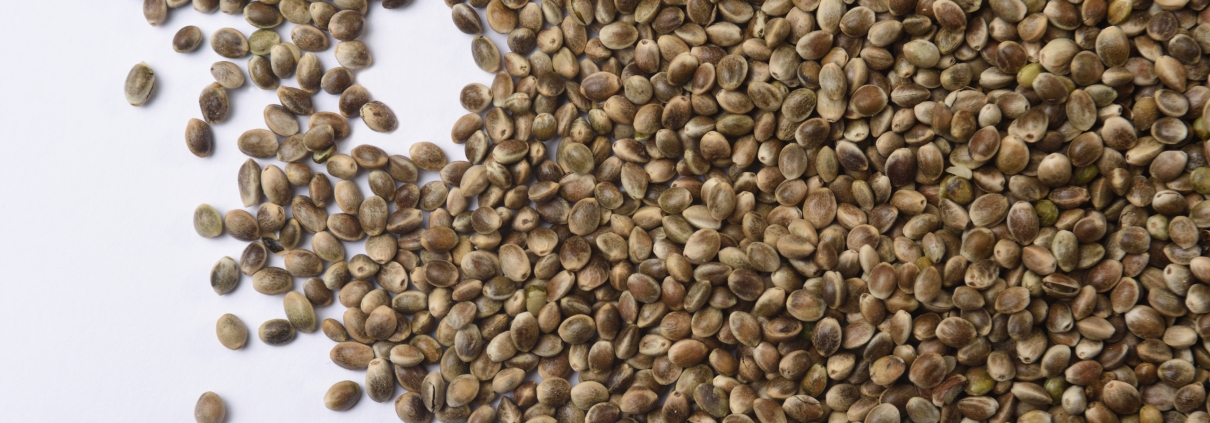GUEST COLUMN – A Homegrown Solution to America’s Animal Feed Shortage
By Graham Owens
While Americans have only recently started to notice the increased prices of basic food staples like eggs, poultry, meat and milk, the writing has been on the wall for a long time among our nation’s food suppliers. The winter storm that hit Texas this year wiped out about $600 million in food, not to mention $300 million in long-term livestock losses. All of this is occurring while many Western states and regions – including West Texas – are engulfed in extreme or exceptional drought. Then, there’s also the ongoing global pandemic, which itself has been a stress test for global food supply chains.
These and other factors have collectively wreaked havoc on numerous supply chains and the effects will likely reverberate for years to come. Few are feeling the impact more than the grain market, which is critical to maintaining the livestock Americans depend upon to keep food on their tables and at a reasonably affordable price.
In a struggle to meet demand, many American operators are importing vast quantities of grain. One leading poultry provider was forced to secure more than 30,000 metric tons of Brazilian soybeans in order to feed its livestock. That’s right – Brazil. But aren’t soybeans a staple American crop? Historically yes: U.S.-grown soybeans typically account for over 40% of the world’s exports – which is why this illustration speaks volumes about the scarcity facing our nation’s farmers.
Although the feed shortage is a global problem not unique to the United States, our nation is uniquely situated to be a leader in solving the problem. And that solution can be found in the hemp plant – which ironically enough was illegal to grow in the U.S. until very recently.
Hemp has all of the nutritional traits of other grains used for animal feed – and then some. It is richer in nutrients than many compounds consumed by our livestock, which is why you’ll find hemp-based nutritional supplements in just about any grocery store. Hemp feed is high in protein, contains high amounts of omega-3 and omega-6 fatty acids, and it can be made into different forms of animal feed, including grains, cake, and meal. Several studies show that animals’ health improved when fed hemp-based diets.
Yet, despite hemp’s known nutritional value, despite the fact that its legal for human consumption, and despite the progress that has been made to reform laws surrounding hemp production, it remains forbidden as an ingredient in livestock feed because the Center for Veterinary Medicine (CVM), a branch of the U.S. Food and Drug Administration (FDA), has been slow to approve hemp for livestock purposes.
With hemp’s change in legal status ought to come a more concerted effort to use hemp to address the global livestock feed shortage. It is projected that there will be 201 million pounds of excess biomass in the supply chain prior to the 2021 planting season. On top of that, the FDA actually has rule-making power to issue an emergency declaration that would allow for hemp-derived animal feed until a longer term regulatory solution is finalized. The solution to the shortage is right in front of us and we can be tapped almost immediately.
That is why Delta Agriculture is leading an effort alongside industry leaders as part of the newly formed National Feed Consortium to urge policymakers to encourage hemp-based feed production in the United States, especially in the short term to address the global feed shortage. Doing so would not only provide much needed relief to American farmers struggling to feed their livestock, it would create jobs, support American hemp farmers, and also support American consumers by keeping the costs of food down. It’s a win-win-win-win solution.
Further, gaining federal approval for hemp to be used as animal feed would also provide researchers the much-needed real opportunities to study hemp feed’s effects on livestock and pave the way to potentially opening up a vibrant industry to U.S. farmers and feed producers.
U.S. policymakers must position our farmers as leaders in the production of hemp – our nation’s food suppliers and family pocketbooks will depend on it.
Graham Owens is President of Delta Agriculture, the largest industrial scale hemp raw goods producer in the United States.
Photo Courtesy of Delta Agriculture.

















